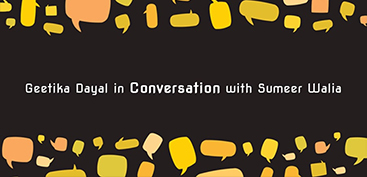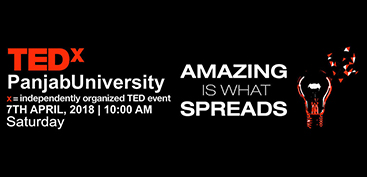The women’s empowerment movement has been taking the whole world by a storm. While there is also a huge backlash that it has brought with it, here is a chance to get an insight into the mind of a ‘feminist’ and the good and bad associated with the feminist perspective, especially with context to the Punjabi readership.
What : Book Discussion & Punjabi Translation – Seeing Like A Feminist
When : Mar 9, 2018 | 2PM – 5PM
Where: Govt. Museum & Art Gallery, Sector 10
The growing popularity of the “F” word, i.e. Feminism, has brought with it a growing disdain towards the women’s empowerment movement which simply asks for equal rights to education, job opportunities, and freedom of expression. The trickledown effect of the feminist movement has brought about some significant changes in today’s mindset of the general population. That is, each citizen recognises the need for banning female infanticide and the importance of initiatives such as ‘Beti Bachao Beti Padhao’.
However, with the kind of independance that women are donning today, a lot of conservative minds out there are hailing the feminist movement as one that wants to squash the male population. In light of this attitude, and with the growing atrocities towards women that we hear of in the news every day, it becomes our duty as responsible citizens of the country to understand the finer nuances of what feminism really is and here is just the opportunity we need to do that.
Lokayat presents a discussion on the book Seeing Like A Feminist by Nivedita Menon and its Punjabi translation by Daljit Ami. Published jointly by Zubaan Publications and Penguin Books, Seeing Like A Feminist is an insightful book about living in a conservative society and the complications that come with it. From doubting your own beliefs to being burdened by the pressure of being ‘a good girl’, Nivedita Menon writes about the political implications of seeing the world through a woman’s eyes in a simple, yet thought provoking manner. With contemporary examples of the gender debate, such as the Burkha ban in France, the book questions the assumptions that society and law systems make towards women.
The book discussion will also have journalist, filmmaker, and translator Daljit Ami give his own insights about working with such a topic from a male perspective. Moreover, the implications of translating such a piece of writing into Punjabi and for a particularly Punjabi readership will be delved upon in detail. Chandigarh based Daljit Ami’s involvement with this book and his presence at the book discussion is an indicator of this event being more than just a haughty women’s discussion. Rather, it is the active debate and participation of both men and women that will bring about the kind of political insight that this book aims to provide. If you take contemporary politics seriously, this is one event to not be dismissed as just another women’s lib thing, for sure.










